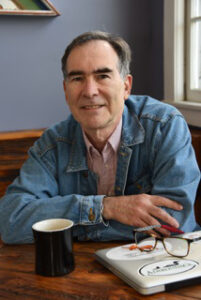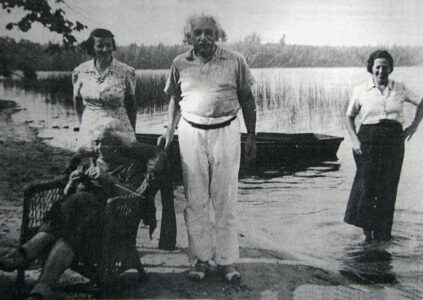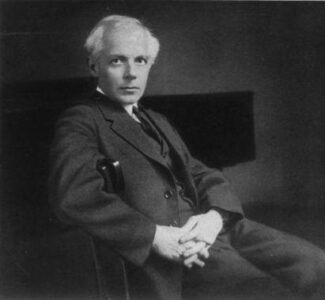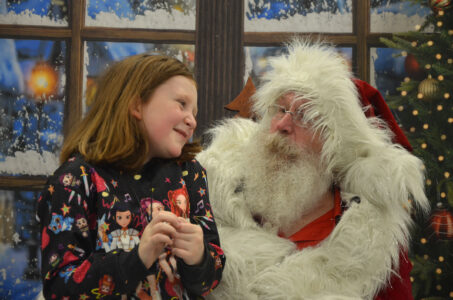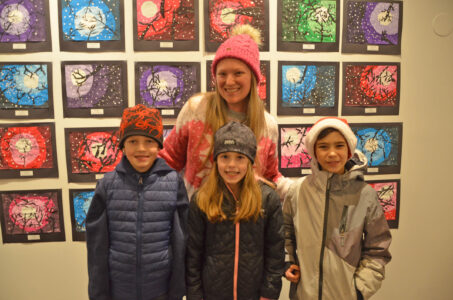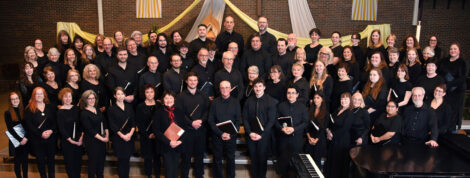Two giants, two bombs and 80 years
New play envisions atomic talks between Einstein, Bartok in SL
- Larry Loebell (Provided photo — Mark Kurtz)
- Albert Einstein with his wife (seated) vacationing at Lake Clear. (Provided photo — Adirondack Daily Enterprise, via Historic Saranac Lake Wiki website)
- Bela Bartok in 1927 (Provided photo — Photographer unknown, via Wikipedia/Historic Saranac Lake Wiki website)
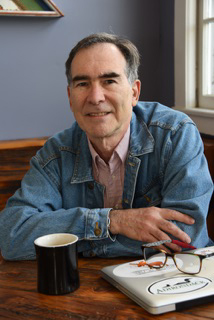
Larry Loebell (Provided photo — Mark Kurtz)
SARANAC LAKE — Nearly 80 years ago, the United States dropped two atomic bombs on the Japanese cities of Hiroshima and Nagasaki, heralding in a new age of warfare and anxiety.
Albert Einstein, considered the father of modern physics — whose famous theory, E=mc2, was a part of the science that led to the bomb — was vacationing in Saranac Lake at the time. So was Bela Bartok, considered one of the greatest composers of the 20th century. The two never met when they were here, but in playwright Larry Loebell’s “Confluence,” they sit down to talk about the politics of their time, their shared love of music and the implications of the atomic bomb.
A free reading of “Confluence” will be held Monday, Aug. 4 at 7 p.m. in the John Black Room at Historic Saranac Lake’s Saranac Laboratory Museum at 89 Church St.
Loebell, a seasonal resident of Saranac Lake, said his latest work spawned out of his realization that both famed men were in town at the time the bombs were dropped, and from looking around at the current zeitgeist, where war and politics weigh heavily on the minds of many.
“There’s been sabre-rattling around the use of atomic weapons,” Loebell said.
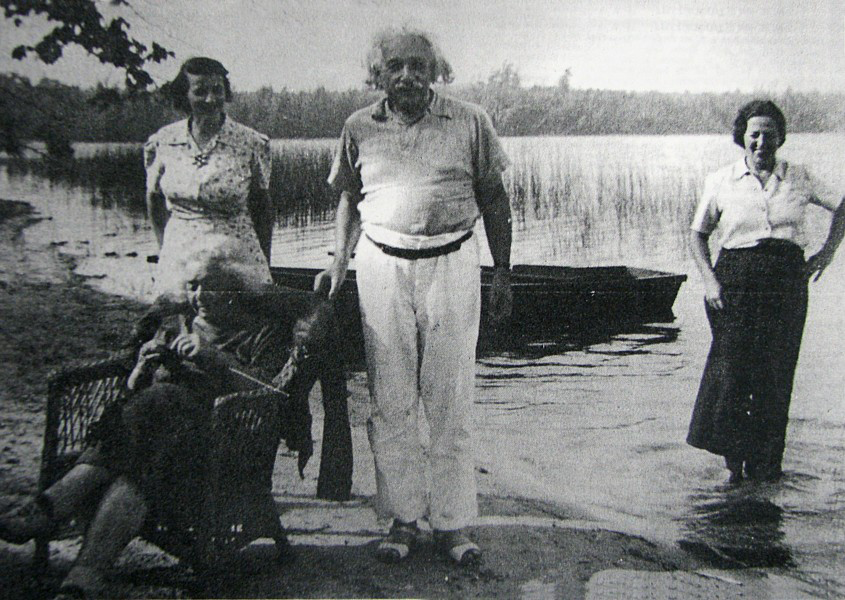
Albert Einstein with his wife (seated) vacationing at Lake Clear. (Provided photo — Adirondack Daily Enterprise, via Historic Saranac Lake Wiki website)
This is still happening 80 years after the bombs were first used.
“I think Einstein would be really freaked out,” Loebell said. “I think he really believed that the horror of the atomic bomb would convince us never to threaten to use it again.”
The bombs were dropped on Aug. 6 and 9, 1945.
When Loebell learned in the Saranac Lake Free Library that Einstein and Bartok were in Saranac Lake at that time, he felt he needed to write about it.
Einstein was staying at the Knollwood Club great camp on Forest Home Road and Bartok was in a tiny cottage on Riverside Drive.
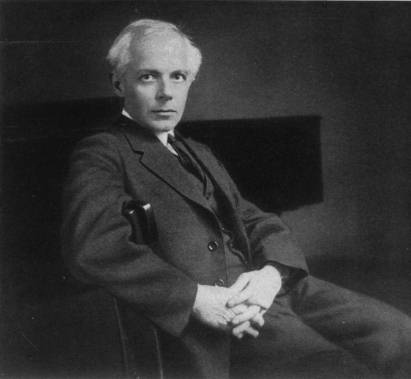
Bela Bartok in 1927 (Provided photo — Photographer unknown, via Wikipedia/Historic Saranac Lake Wiki website)
After speaking with Historic Saranac Lake Executive Director Amy Catania last summer about his plans for the script, she told him she was interested in hosting a reading at the museum.
He started thinking about the two meeting and talking. They’d have a lot to talk about. They were both refugees from Europe, strongly antifascist and anti-war, politically vocal and musicians.
Bartok was one of the biggest composers of his time and Einstein was an accomplished amateur violinist.
Loebell’s envisioning of this conversation is that it would be “a little awkward at first” before the two make an organic connection. Loebell loves dialogue and interaction. He said much can be revealed — or concealed — in a conversation.
Their conversation is interrupted by a reporter from the Albany Times Union wanting to speak with the professor about the bomb and the new energy it unleashed. This part of the play is based on a real event, too.
Times Union reporter Dick Lewis drove up to Saranac Lake on Aug. 11 in the hopes of scoring an in-person interview with Einstein, who was refusing countless media requests. His patience, charm and luck led him to find the good graces of the caretaker, Joseph Walsh, who eventually decided to make a request to Einstein’s secretary, Helen Dukas. Einstein allowed himself to be interviewed.
He was a pacifist who later opposed nuclear proliferation. Still, Einstein’s letter to President Franklin Delano Roosevelt in 1939, warning that the Nazis were working on an atomic bomb, led to the U.S. starting the Manhattan Project to work on one of their own. And his famous equation explains that mass can be converted into energy, the foundation of atomic weapons.
Though he spoke largely off the record, and what answers he did give were mostly evasive, he did speak on the new energy that is being used to this day.
“In developing atomic or nuclear energy, science did not draw upon supernatural strength, but merely imitated the reaction of the sun’s rays,” Einstein said. “Atomic power is no more unnatural than when I sail my boat on Saranac Lake.”
Loebell’s plays often focus on historical subjects. In Bartok and Einstein, he said he found a rich vein to mine.
A favorite teacher of his once told him not to over-research things. This is hard to do. He loves the research part of the process. But he said using his imagination is the point of writing.
The conversations the two giants of their fields hold are not absolutely accurate, but his imaginative depictions. He hopes he’s gotten close to their sensibilities.
It was easier to research Einstein. He is as close to a physicist can get to a rock star.
It was a bit harder to know what Bartok would think and say. But in his research, Loebell read a “lovely biography” written by Bartok’s son and found out that Bartok recorded introductions to some of his pieces in English, so he could learn how the composer talked.
Loebell said he surprised himself with how fast the script for “Confluence” came together. It started last summer and he’s already held a reading around his kitchen table in Philadelphia.
The reading on Aug. 4 will have actors with scripts at music stands and minimal movement. Loebell said he would love a full production of the play at some point.
Loebell said Pendragon Theatre and Adirondack Stage Rats were extremely helpful in this.
The reading features local actors Jordan Hornstein (Einstein), Chris Leifheit (Bartok) and Brenden Gotham (Walsh), as well as Levi Chaplin-Loebell of Philadelphia (Lewis) and Marnie Andrews of New York (Dukas).

